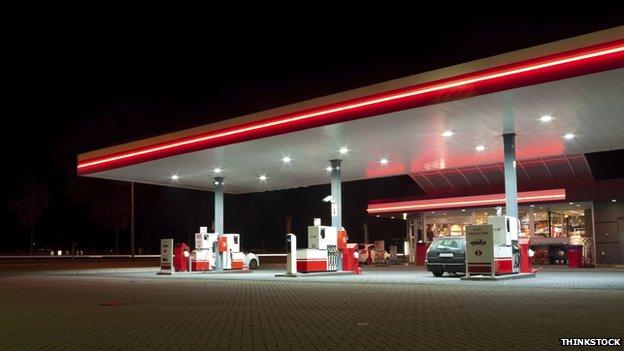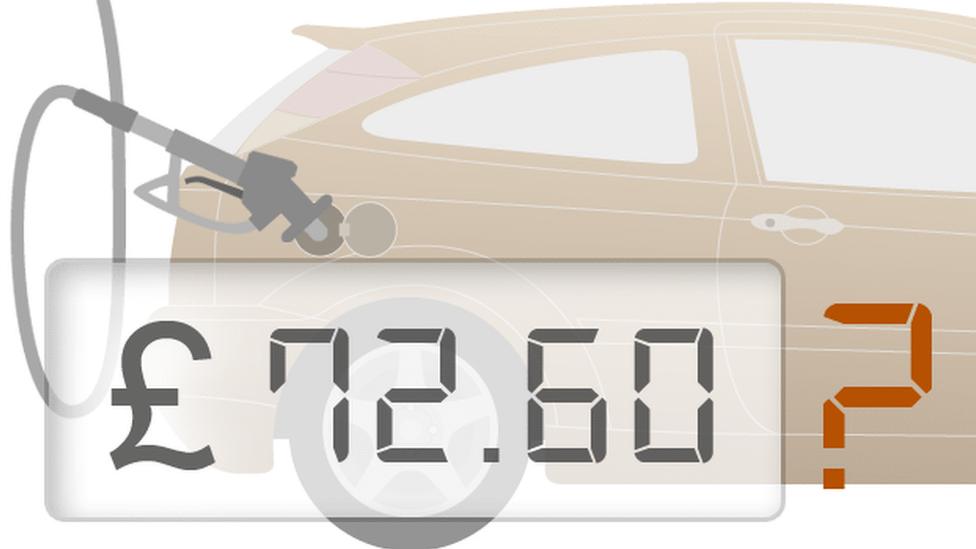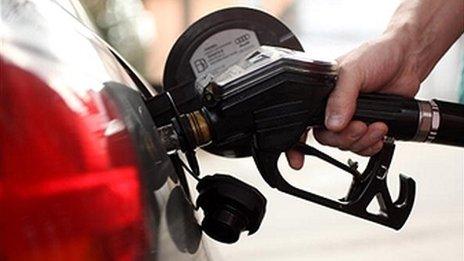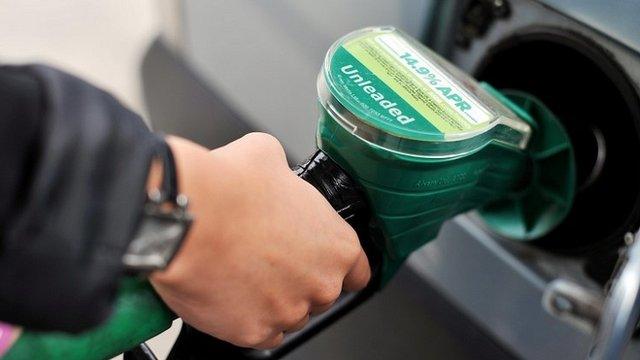Petrol prices cut by three UK supermarkets
- Published

Hundreds of rural petrol stations have gone out of business in recent years, according to the PRA
Three major UK supermarkets are to cut the prices of petrol and diesel, starting on Tuesday.
Sainsbury's and Tesco both announced a drop of up to five pence per litre, while Asda said it would reduce petrol by up to one penny and diesel by two.
The motoring organisation AA welcomed the move, as did its rival, the RAC.
However the group representing independent fuel retailers said the announcements would further endanger local petrol stations.
'New low'
RAC fuel spokesman Simon Williams said the price of both petrol and diesel had "been low for around three months" and that motorists have already been enjoying "some of the cheapest prices for over three years".
But he added that the latest price cuts "will take us to a new low, the likes of which we haven't seen since late 2010, early 2011 when the price of petrol and diesel unfortunately jumped by 10 pence a litre in just a few months".
A spokesman for the AA, Luke Bosdet, echoed those sentiments, saying the cuts were "particularly welcome as families get back to school runs and into their autumn routines".
In March, the AA said petrol prices had fallen to their lowest in three years.
In the same month, Chancellor George Osborne unveiled a fuel duty freeze, as part of the annual Budget.
Rural pressures
However the Office for National Statistics (ONS) said the fall in petrol prices was partly to blame for the UK's inflation rate growing more slowly than expected earlier this year.
The head of the RMI Independent Petrol Retailers Association (PRA), Brian Madderson, told the BBC the supermarkets' latest move would deliver yet another blow to local filling stations, which have been struggling to survive in recent years.
Last week, the PRA said almost 900 independent forecourts had closed between 2008 and 2013, more than a third of which were in rural areas.
"Those businesses are at the heart of rural communities," Mr Madderson said, adding that they tend to employ up to 10 people, and offer "much needed local facilities".
"Once they're gone, they're gone," he added.
- Published23 December 2019

- Published21 March 2014

- Published25 March 2014
